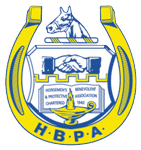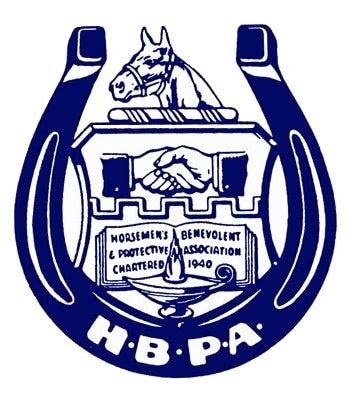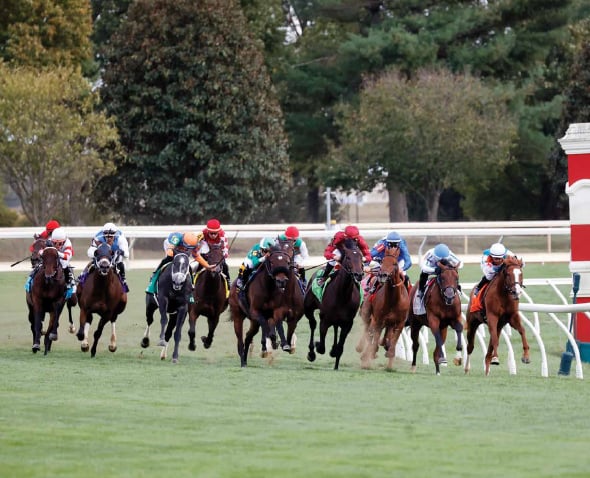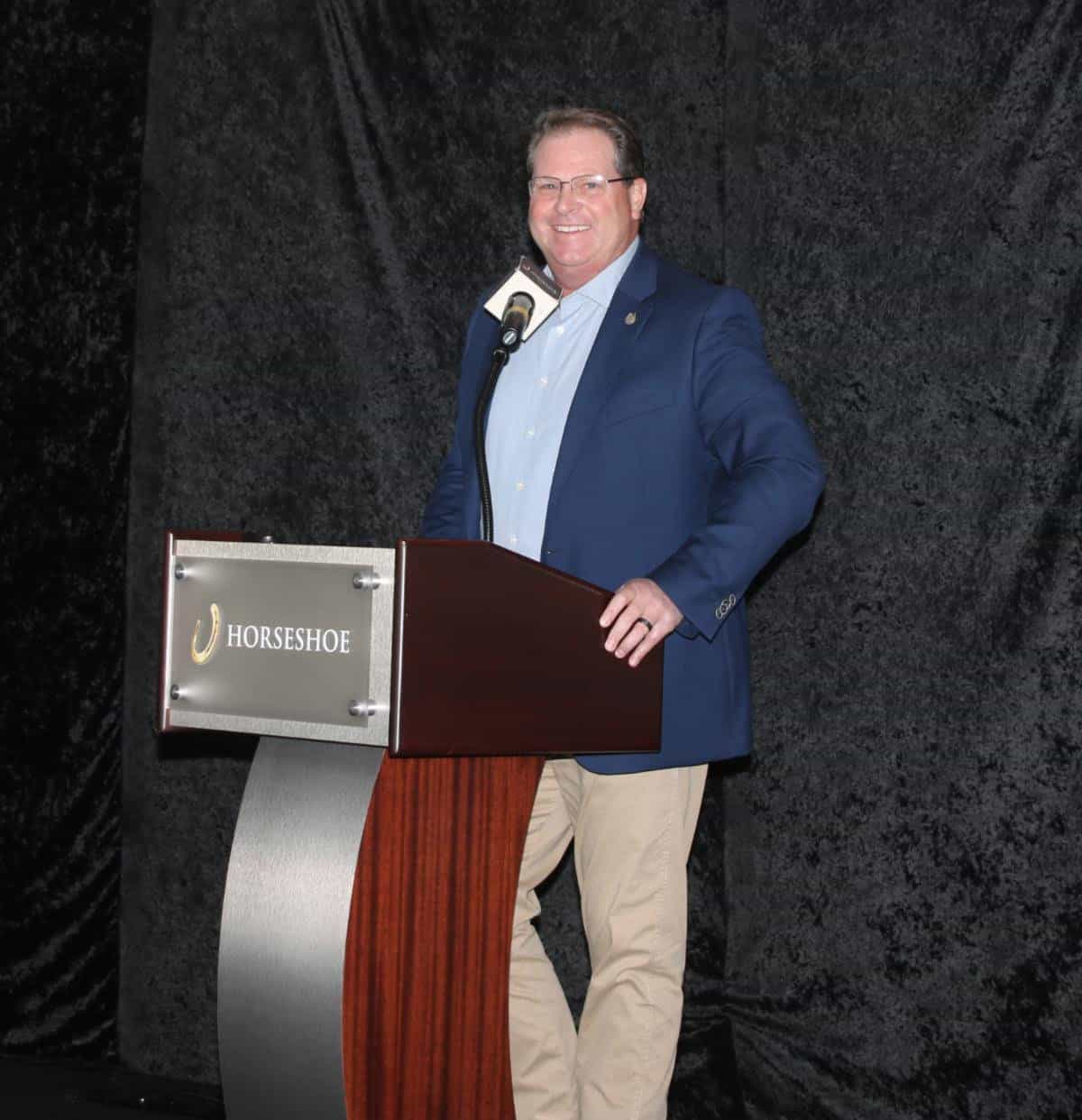Ron Moquett at National HBPA Conference: ‘Our Responsibility is to Represent the Industry’
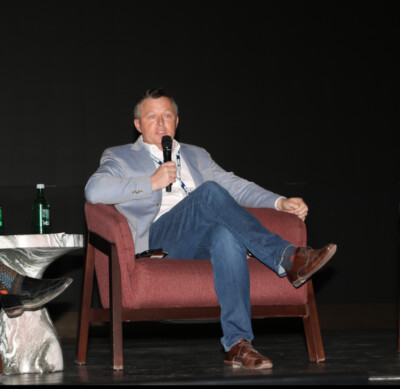
Ron Moquett (Photo by Denis Blake/National HBPA)
Trainer Ron Moquett, who is on the board of the Arkansas HBPA, said he decided 12 years ago “to be invested in the sport. I’ve got my money, my blood, sweat and tears, I’m going to be a part of the HBPA. I’m going to be as involved as much as I can with our industry.”
Moquett was on the Wednesday afternoon panel entitled “Representing Our Industry,” joining moderator Steve Byk, host of the popular weekday satellite radio show At The Races With Steve Byk, veteran racetrack executive Rick Hammerle and prominent horse owner Danny Caldwell.
“A lot my comrades, it’s just so easy to sit to the side and bellyache,” Moquett said. “I was asked to be part of the HBPA, and I figured that was the way I could impact the sport. You need to get involved to help the sport that’s your livelihood and make sure people know about our sport.
“Our job, our responsibility is to represent the industry. Show the passion we have for the animal, the respect we have for the game and try to promote that. Overcome the negative. If there is a negative thing, let’s overcome it. Let’s don’t take our industry down with it.”
Moquett has a large social-media presence, including video clips of his horses. He said when he encounters someone who is critical about horse racing, while obviously having little knowledge of the industry, he invites them to his barn or to the races to show them the sport up close and the care horses receive.
Veteran racing executive Rick Hammerle, who serves as Oaklawn Park’s racing coordinator and Kentucky Downs’ director of racing operations, said racetracks and the industry overall need do more than pay lip service to being transparent, particularly with horseplayers. He advocated for videos and live streams to educate the public about the inner machinations of racing, such as how a post-position draw actually works.
“We say we’re transparent, but do we really let them in?” Hammerle said.“… I really think a lot of people who complain, it’s out frustration. They don’t know… It’s incumbent upon us to bring the story to them, so they know what we do.”
Prominent owner Danny Caldwell said he tries to answer every question he gets about horse ownership and racing but believes it’s important to be candid, including how tough the business is.
“If you win at 20 percent, that’s good in this business,” he said. “You can’t bat .200 in the pros…. I hate losing, but guess what? You better get used to it in this sport.”
Still, Caldwell said it’s incumbent upon racing participants to accentuate the positive, including retired racehorses getting second careers off the track.
“Ninety-nine percent of the people care about the horses,” he said of the industry. “It’s that one percent that brings scrutiny at times. That’s what we have to alleviate. There’s so much more positive than there is negative.”
At the same time, Caldwell said racing should quit trying to appease critics “who are never going to be appeased.”
Byk said everyone needs to “tend their own garden, and that alone will go a long way toward improving everything for everybody.
“I certainly don’t mind being thought of as a Pollyanna or wearing rose-colored glasses,” he said. “But it doesn’t feel like we’ve got other options under our control. We can only take care of what we have contact with. It’s trickle-down…. If you’re being a good steward, it rubs off and it helps permeate the environment.”
Hammerle, referencing the popularity of the Kentucky Derby, said that when in doubt, “tell them about the horse. It’s proven that’s the method that works.”
Other panels and presentations
The Mike Maker-trained Special Reserve was honored as the HBPA’s Claimer of the Year, with co-owners David Staudacher and Peter Proscia on hand to accept the award. Special Reserve, a $40,000 claim last year, won two graded stakes and finished a competitive fourth in the $2 million Breeders’ Cup Sprint for his new connections.
The National HBPA also honored for meritorious service past National president Leroy Gessmann, past president of the Tampa Bay HBPA Bob Jeffries and Denis Blake, who recently stepped away as editor of the HBPA’s quarterly magazine Horsemen’s Journal after turning the publication from a money-loser into the black. Horsemen’s Journal now will be overseen by ST Publishing, with veteran turf journalist Tom Law the editor.
The National HBPA’s Lauren Monnet moderated a panel with Oaklawn’s Teri Hoffrogge and the Louisiana HBPA’s Kristie Piglia on the role of the horsemen’s bookkeeper. The conversation included the utilization of technology, such as the move toward using the ACH (Automated Clearing House) as being safer and faster than checks for moving money (and cheaper than wire transfer). The panel also discussed internal and external security threats, including measures to reduce the chance of a cyber attack and fraudulent checks. Hoffrogge and Piglia addressed the unique challenges presented by partnership or LLC accounts, with Piglia recommending those entities have a bank account by the same name. Hoffrogge noted the importance of sharing information with other horsemen’s bookkeepers as far as fraud attempts that have surfaced and ways to improve the process of handling the horsemen’s money.
“Interactions with other bookkeepers really helps,” Piglia agreed.
Monnet said the National HBPA is creating a horsemen’s bookkeeper page on its website, hbpa.org.
The conference’s opening day closed with officials from one of a third-party mutuel benefits organization urging HBPA affiliates to “get your data” and validate it regularly in an effort to makes sure purses are being paid correctly to horsemen.
In the presentation “CHRIMS – How to Account for Horsemen’s Distributions,” Gunner LaCour, president of the California-based not-for-profit, outlined potential roadblocks that include the many responsibilities of horsemen, longstanding relationships and ways of operating within the industry and increasingly more-complex forms of wagering can create potential roadblocks that can lead to discrepancies.
“It’s like the old Reagan quote, ‘Trust but verify,’” LaCour said of what to do with the data. He and CHRIMS Chief Operating Officer Kaitlin Fox also urged HBPA affiliates to question assumptions. That includes taking a fresh look at existing procedures, understanding the data, making regular reconciliations and work in data cleansing and balancing into regular routines.
“It’s amazing how fast it can get complicated,” LaCour said. “And it’s easy to get these numbers wrong. Unless you have a way to check, you are on an unlevel playing field.”
Susan Martin, director of marketing for The Jockey Club Information Systems, relayed the major programs that can help horsemen keep track of their racing and breeding stock through Equineline.com’s portfolio service. TJCIS is a wholly-owned subsidiary of The Jockey Club, with Equineline a long-time sponsor of the National HBPA.
A popular component of Martin’s annual presentation is what’s new and what’s free. That includes the Equineline sales catalog app whose features include automatic updates and the ability to write notes on the digital sales catalog.
Steve Blanchard, president of National HBPA sponsor Finish Line, outlined the horse products that are the result of four generations of his family being in horse racing. “Passion remains at the core of who we are,” Blanchard said. “It’s in our DNA.”
